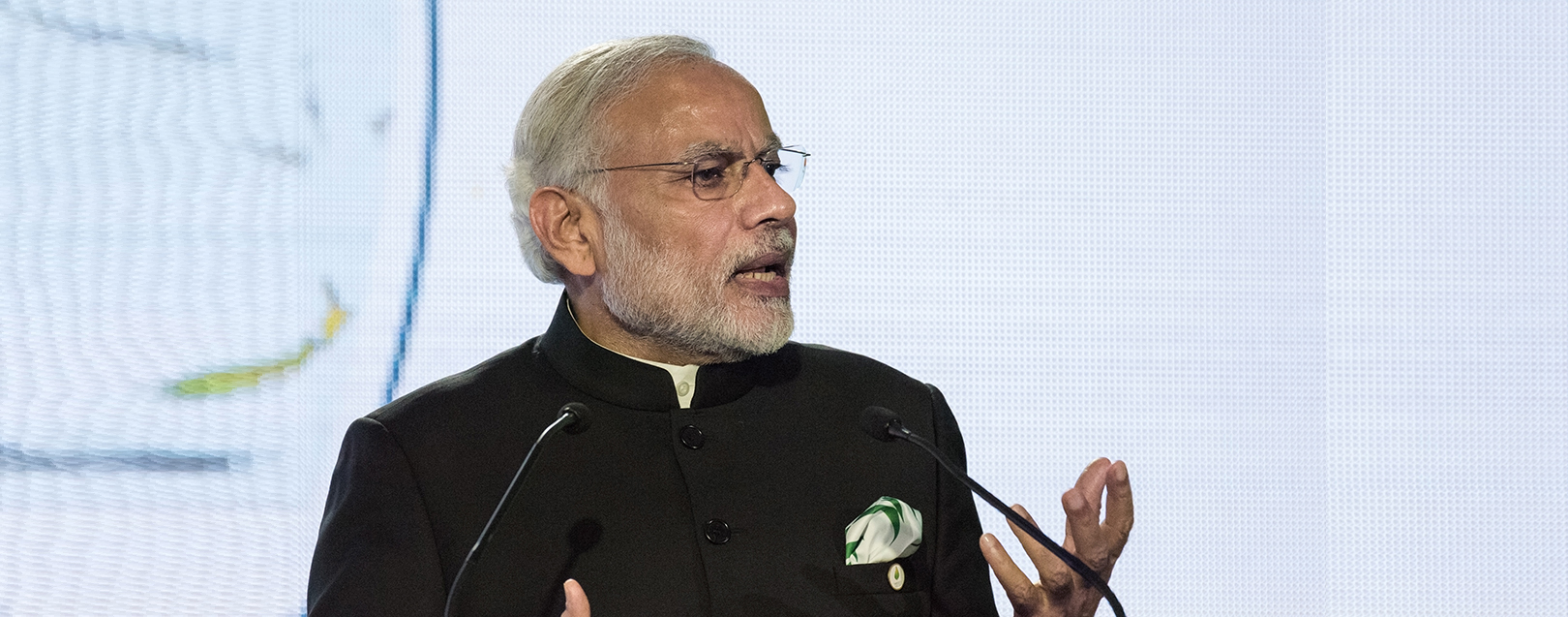
You don’t outrightly challenge the quality of a nation or its products whose prime representative is open to a conversation. Would you doubt the quality of a brand if its CEO were to meet you and sell the idea or product?
Steven Philip Warner | June 2017 Issue | The Dollar Business
The question of whether perception matters seems an academic one. Yet, it’d be hard to dismiss the fact that in an age where everyone is busy thumb-wrestling with their smartphones, it’s perception more than anything that aids decision-making. In foreign trade and policy, the truth is no different. Whether it be outcomes of individual or foreign policy experiments, the decision-maker of today is ever so influenced by what he perceives to be the truth; caring little if it really is.
That India’s exports have risen for the seventh consecutive month in April 2017 despite the rupee appreciating and in an atmosphere of rising trade protectionism gives birth to a perception. It’s a positive one for India’s exports. And more remarkable is the perception that’s being formed from India's recent defiant foreign policy stance, symbolic of a nation in control of its fate, yet ethical to dedicate itself to becoming anti-North Korean and anti-oversmart China or over-terrorised Pakistan. And more than trade numbers, it’s the adoption of a new modus operandi by the Indian government that makes for a good reason to believe why our global trade market share should rise beyond the 5% level by 2020. Of course, implementation of GST, storming into an era of Open FDI regime, dismantling of FIPB, revamping of FTP, adoption of a policy of rupee trade deals to facilitate ease of doing trade and reducing volatility pressures on Indian exporters, etc., are important to ensuring a stronger ‘Brand India’ at the ports. But how the Modi government has conducted itself in the past three years is how world buyers are imagining Made in India to be. The perception now matters.
First, you don’t outrightly challenge the quality of a nation or its products whose prime rep is open to a conversation. Would you doubt the quality of a brand if its CEO were to meet you and sell the idea or product?
Second, what the Modi government has achieved through its portrayal of strength is established a trust for Made in India around the world. (If the government has the spine on foreign policy matters against superpowers, the nation’s exporters must be sharing some of the courage and ethics, right?) India boycotted the One Belt One Road (OBOR) summit held in China in May this year. Reason – OBOR will go against the “sovereignty and territorial integrity” of India. Critics complain that India has possibly denied itself benefits of something as big as OBOR. But ask Modi, the new age leader, and he will perhaps retaliate, "China who?"
Then, there are other loud similar acts that help portray a strong image for India, especially amongst those willing to conduct trade with ‘fair and strong-willed’ nations. India’s recent ban on exports of all goods (except food and medicine) to North Korea is another sign that shows how the nation is hell-bent on doing trade with the right partners, even if it comes at the cost of writing off about $200 million in foreign trade with a stroke of the pen. Taking the ban one step further is the announcement of a freeze order on all assets held in India by the North Korean government. Kim Jung Un who?
At the same time however, India isn’t one shade scared to do what it feels right. The uranium deal with Australia and attempts to strengthen ties with Russia are clear instances. [India cares little if Russia is blamed for rigging the US elections and masterminding WannaCry!
India in 2017 is a nation with a clear intent in world policy and trade. As per a McKinsey study, this “positive perception” helps. [“A strongly positive nation brand will boost perception of quality of the products exported from that country…”] Shockingly, India’s value as a country brand has fallen in recent years. As per FutureBrand’s Country Brand Index, it stood at #23 in 2010 and has fallen to #50 today. But we are sure that with strong decision-making at the Centre, India will fare better on this chart in 2020. Till then, our policymakers should continue doing what's 'right' – whether it be to defy a rogue state like Pakistan or anger a couple of elements at WTO.
Get the latest resources, news and more...
By clicking "sign up" you agree to receive emails from The Dollar Business and accept our web terms of use and privacy and cookie policy.
Copyright @2026 The Dollar Business. All rights reserved.
Your Cookie Controls: This site uses cookies to improve user experience, and may offer tailored advertising and enable social media sharing. Wherever needed by applicable law, we will obtain your consent before we place any cookies on your device that are not strictly necessary for the functioning of our website. By clicking "Accept All Cookies", you agree to our use of cookies and acknowledge that you have read this website's updated Terms & Conditions, Disclaimer, Privacy and other policies, and agree to all of them.

